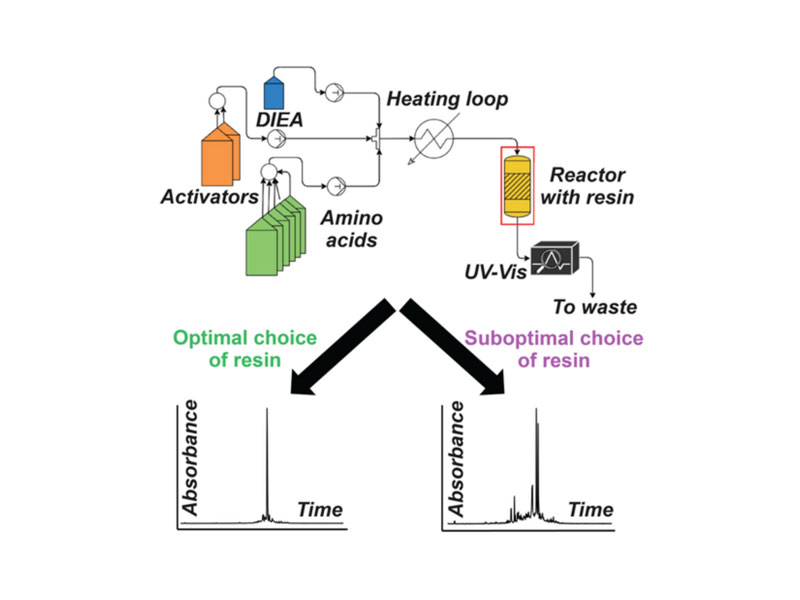
Investigation of commercially available resins for the automated flow synthesis of difficult or long peptide sequences

Investigation of commercially available resins for the automated flow synthesis of difficult or long peptide sequences
Michael A. Lee, Joseph S. Brown, Andrei Loas, Bradley L. Pentelute
Abstract
Solid-phase peptide synthesis (SPPS) is widely used to produce peptides. Since its invention, the solid support has enabled the elongation of the synthetic peptide chain. As technologies have evolved, the length of peptide chains accessible with SPPS has grown to that of single-domain proteins. Resins for SPPS have advanced to improve synthesis capabilities as well. The functionalization of solid supports with polyethylene glycol (PEG) is commonly employed in a range of commercially available resins to aid in the ability to synthesize long or difficult sequences. A notable example of a widely used PEG-based solid support is ChemMatrix® resin; however, this and several similar resins have recently been discontinued. Here, we demonstrate and compare the capabilities of OctaGel™, ProTide®, and TentaGel XV® resins in synthesizing sequences ranging from peptides to single domain proteins using automated fast-flow peptide synthesis. Our studies indicate that each resin performs well for routine peptide synthesis by automated flow, whereas TentaGel XV resin showed the best performance for synthesis of difficult or long peptide sequences when comparing quality using yield, purity, and real-time UV absorbance monitoring during synthesis.



